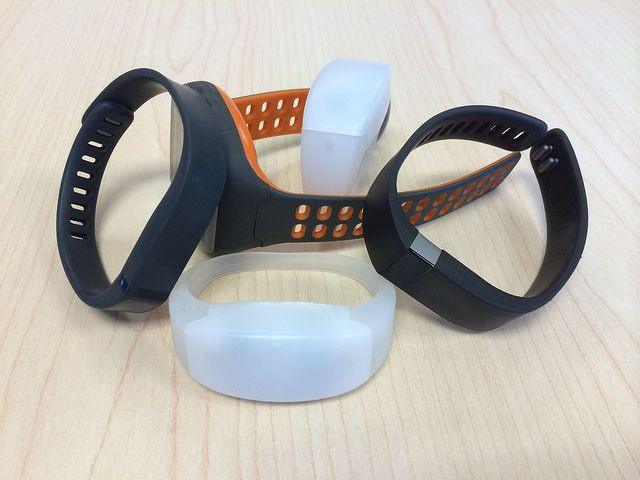In 6 Months You Won't Be Using Your Fitness Tracker Anymore; Better Get Your Steps in Now

You’ve heard everyone, from your grandmother to the trainer at the gym, to people online, say that wearable fitness trackers are the new in thing. You might’ve seen them on your friends and family — colorful wristbands that show how many steps, calories burned, miles walked and more a person has achieved over the course of a day.
Maybe you have one on your wrist right now, and you’ve made it halfway toward your daily step count. First of all, congratulations. Second, how long have you actually been wearing that fitness tracker? If research has proven anything, it’s likely you haven’t been wearing it long, and if you have, you’ll soon abandon it.
You might hand it down to one of your parents, hoping it gets them moving a little bit more than they do now. Perhaps you’ll sell it online to somebody who is eager to see how many steps a day they take. More than likely, however, you’ll put it in a drawer and forget all about it.
According to the research firm Endeavor Partners, about a third of all fitness trackers are abandoned after the first six months of use. Another health care investment fund, Rock Health, estimated that, according to Fitibit’s 20 million registered users, only about half of them were actively using their tracker in 2015.
"The question for investors is how long the market will continue to grow at this rate, and whether Fitbit can execute on growing engagement before ... the number of devices sold per year reaches saturation," Malay Gandhi, a managing director at Rock Health, wrote in a blog.
Fitbit is getting the crux of news and investigation, as they currently dominate the fitness tracker market, with a 76 percent market share of U.S. revenue. And the company is also profitable, pulling in more than $132 million last year alone.
A very interesting aspect of the fitness tracker trend is, as researchers from the University of Pennsylvania found, that wearable trackers don’t actually inspire healthy living and positive behavior changes. “The gap between recording information and changing behavior is substantial,” said the study’s authors, “and while these devices are increasing in popularity, little evidence suggests that they are bridging that gap.”
It will be interesting to see how Fitbit, Jawbone, Nike, and other fitness device makers move forward in the coming years, as the market gets more and more saturated with wearables. With Apple entering the fray this year with the iWatch and Google reportedly looking to get into the business, only time will tell when the fitness tracker bubble bursts.
Source: Patel MS, Asch DA, Volpp KG. Wearable Devices as Facilitators, Not Drivers, of Health Behavior Change. JAMA. 2015.



























